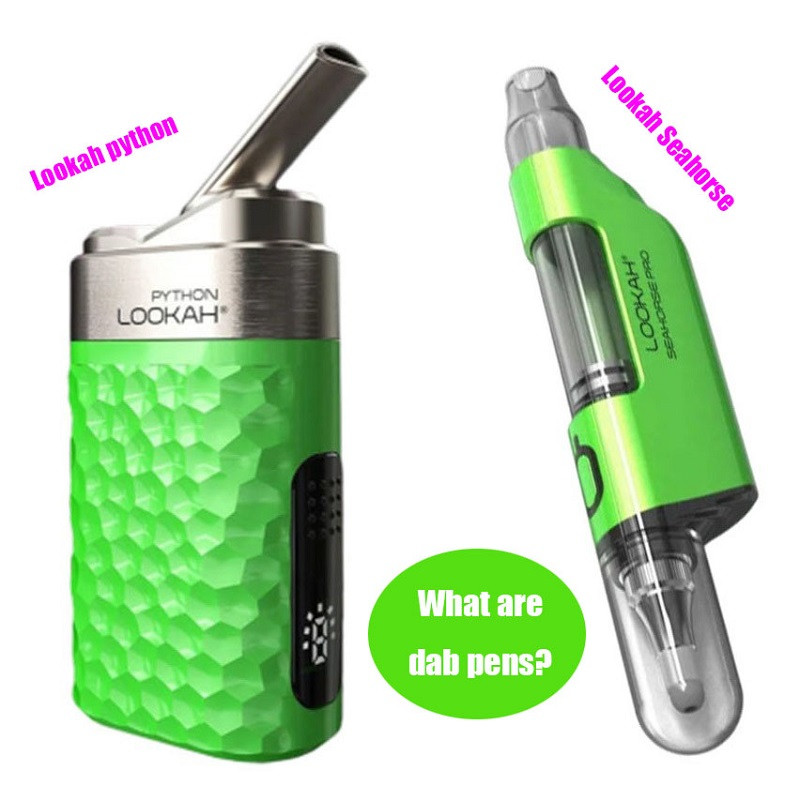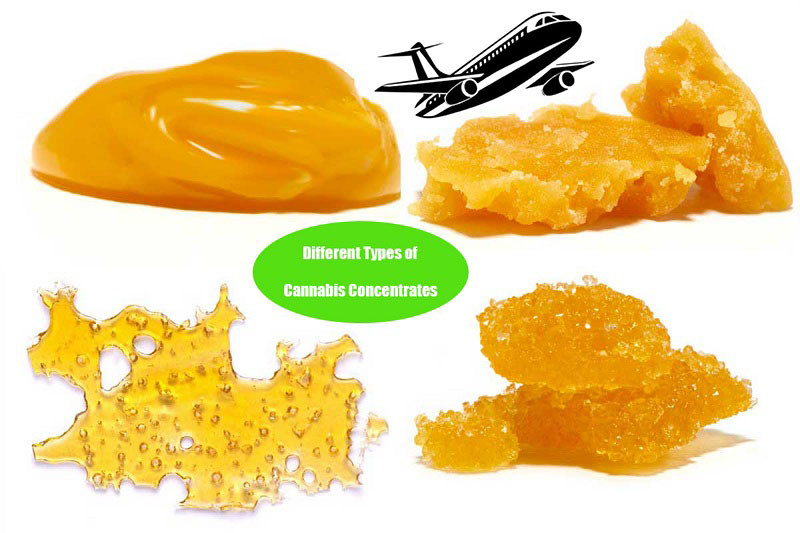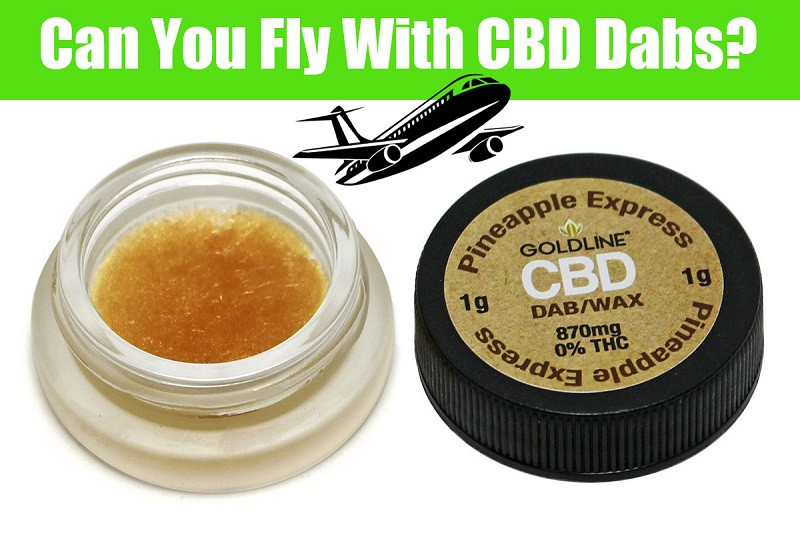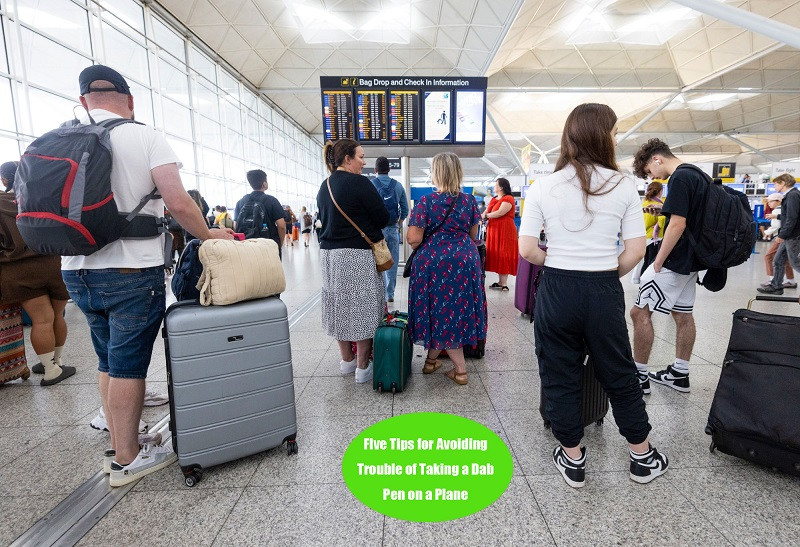Can You Fly With A Wax Pen? Yes, you can bring a wax pen on a plane, but it’s crucial to understand the rules and regulations to ensure a smooth and hassle-free travel experience, so this article from flyermedia.net will help you navigate these guidelines, including regulations regarding lithium batteries, restrictions on cannabis concentrates, and tips for avoiding any potential issues with airport security. You’ll gain the knowledge to confidently travel with your dab pen, ensuring a seamless experience and avoiding legal complications; explore more with flyermedia.net, where we cover everything from e-cigarette rules to FAA regulations and TSA guidelines.
1. What Exactly Is A Wax Pen?
 Lookah Python and Seahorse dab pens
Lookah Python and Seahorse dab pens
A wax pen, also known as a dab pen, is a portable, electronic vaporizer designed for heating and inhaling cannabis concentrates, such as wax, shatter, or crumble; these pens offer a discreet and convenient method for consuming concentrates without the need for traditional smoking methods. They’re favored for their ease of use, portability, and ability to deliver potent doses.
Components of a Wax Pen
Wax pens typically consist of four main components:
- Lithium Battery: Powers the device. The battery heats the atomizer to vaporize the concentrate.
- Heating Chamber: This is where the cannabis concentrate is placed. It’s designed to withstand high temperatures.
- Atomizer (with Heating Coil): Heats up the concentrate, turning it into vapor. Atomizers can be made from various materials, such as ceramic or quartz.
- Mouthpiece: The part through which the vapor is inhaled.
How Wax Pens Work
According to research from Embry-Riddle Aeronautical University, in July 2025, Wax pens operate by heating cannabis concentrates to a temperature high enough to produce vapor, but not so high as to cause combustion. This vaporization process allows users to inhale the active compounds in the concentrate without the harmful byproducts associated with smoking.
2. Wax Pen vs. Vape Pen: Decoding the Differences
 Dab pen vs vape pen comparison
Dab pen vs vape pen comparison
Wax pens and vape pens are both electronic devices used for vaporizing cannabis products, but they are designed for different types of materials; the main difference lies in the type of cannabis concentrate they use: wax pens are designed for thicker, waxier concentrates, while vape pens are often used with oils or dry cannabis flower. Understanding these differences is crucial for anyone looking to travel with these devices.
Key Differences Summarized
| Feature | Wax Pen | Vape Pen |
|---|---|---|
| Concentrate | Wax, shatter, crumble, and other solid concentrates | Oils, e-liquids, and dry herbs |
| Atomizer | Designed for high-viscosity materials; often uses coils made of quartz or ceramic | Designed for lower-viscosity materials; various coil types available |
| Temperature | Higher temperature range to vaporize thicker concentrates | Lower temperature range suitable for oils and e-liquids |
| Portability | Compact and easy to carry, similar to vape pens | Compact and easy to carry, similar to wax pens |
| Maintenance | Requires regular cleaning to prevent buildup of sticky concentrates | Requires less frequent cleaning compared to wax pens |
| Vapor Quality | Produces potent and flavorful vapor due to the high concentration of active compounds | Delivers smoother vapor with varying flavor profiles depending on the oil |
In-Depth Look at Vape Pens
Vape pens are versatile devices that can handle a range of materials, including e-liquids, THC or CBD oils, and even dry herbs with the appropriate attachments; these pens typically use pre-filled cartridges or refillable tanks, making them convenient for on-the-go use. They are generally easier to maintain than wax pens due to the lower viscosity of the materials they vaporize.
Detailed Examination of Wax Pens
Wax pens are specifically engineered to vaporize solid cannabis concentrates. These concentrates are heated in a chamber using a coil, typically made of quartz or ceramic, to produce a potent vapor; wax pens require regular cleaning to prevent residue buildup, which can affect performance and flavor.
Why the Choice Matters for Travel
When planning to travel, understanding the differences between wax pens and vape pens is essential; the type of device you have will influence how you pack it and what regulations you need to consider. Additionally, the legality of the substance you intend to use with the pen plays a significant role in whether you can travel with it legally.
3. Decoding TSA Regulations: Can You Bring a Wax Pen on a Plane?
Yes, you can bring a wax pen on a plane, but there are specific regulations you must follow to ensure compliance with Transportation Security Administration (TSA) guidelines; these regulations primarily concern the device itself (without any cannabis concentrates) and the lithium batteries that power it. It’s essential to adhere to these rules to avoid confiscation or potential legal issues.
FAA Guidelines on E-Cigarettes and Vaping Devices
According to FAA regulations, all electronic cigarettes and vaping devices, including wax pens, must be carried in carry-on luggage or on your person; they are strictly prohibited in checked baggage. This is because the lithium batteries in these devices can overheat and pose a fire risk if placed in the cargo hold.
Specific Rules for Lithium Batteries
Lithium batteries are a primary concern for aviation safety authorities. The FAA mandates that:
- Devices containing lithium batteries must be protected from accidental activation to prevent overheating.
- Spare lithium batteries must also be carried in carry-on luggage and protected from short-circuiting.
- Lithium-ion batteries should not exceed 100 watt-hours (Wh) per battery.
- Lithium metal batteries should not exceed 2 grams of lithium content per battery.
Ensuring Compliance with Heating Element Safety
To prevent accidental activation during travel, it’s recommended to:
- Remove the battery from the wax pen if possible.
- Store the device in a protective case to prevent accidental button presses.
- Separate the battery from the heating coil to ensure no power is supplied unintentionally.
Why These Rules Matter
The FAA’s regulations are in place to prevent potential fire hazards caused by overheating lithium batteries. In 2023, there were multiple incidents of e-cigarettes and vaping devices catching fire in transit, highlighting the importance of these safety measures; by following these guidelines, you contribute to a safer flying environment for everyone.
4. Can You Bring THC Dabs (Cannabis Concentrates) on a Plane? Navigating the Legal Minefield
 Can you take THC dabs on plane
Can you take THC dabs on plane
No, you cannot bring THC dabs or any cannabis concentrates on a plane, as these products are illegal under federal law; despite the growing number of states that have legalized cannabis, federal law supersedes state laws at airports, which are under federal jurisdiction. This means that possessing any form of cannabis, including concentrates like wax, shatter, or live resin, can lead to legal consequences.
Federal vs. State Laws: A Critical Distinction
While many states have legalized cannabis for recreational or medicinal use, the federal government still classifies cannabis as a Schedule I controlled substance. This classification means that it is illegal to possess, use, distribute, or manufacture cannabis under federal law. Airports fall under federal jurisdiction, making it illegal to bring cannabis products through security checkpoints or onto airplanes.
Consequences of Violating Federal Law
Attempting to bring THC concentrates on a plane can result in various legal penalties, including:
- Confiscation: TSA agents are required to report any 발견 of illegal substances to law enforcement.
- Arrest: Depending on the amount of cannabis and the local laws, you could be arrested and charged with possession or drug trafficking.
- Fines: Penalties can include significant fines, which vary based on the jurisdiction and the amount of cannabis involved.
- Criminal Record: A conviction for possession or trafficking can result in a criminal record, which can impact future employment and travel opportunities.
TSA’s Role: Not Specifically Looking for Drugs
The TSA’s primary mission is to detect and prevent threats to national security; while TSA agents are not specifically searching for drugs, they are obligated to report any illegal substances they come across during the screening process. If an agent discovers cannabis concentrates in your possession, they will notify law enforcement authorities, who will then determine the appropriate course of action.
Why Concentrates Face Harsher Treatment
Cannabis concentrates are often treated more harshly than flower because they are highly potent. The concentration of THC in dabs, wax, and shatter can be significantly higher than in traditional cannabis flower, making them subject to stricter enforcement.
5. Can You Fly With CBD Dabs or Concentrates? Understanding the Nuances
 Can you take CBD dabs on plane
Can you take CBD dabs on plane
You can fly with CBD dabs or concentrates that contain no more than 0.3% THC on a dry weight basis, as these products are federally legal under the 2018 Farm Bill; however, it’s crucial to adhere to specific guidelines to avoid any issues with TSA or law enforcement. Proper packaging, labeling, and documentation are essential when traveling with CBD products.
The 2018 Farm Bill: A Game Changer
The 2018 Farm Bill legalized hemp-derived CBD products at the federal level, provided they contain no more than 0.3% THC. This legislation has made it legal to buy, sell, and possess CBD products that meet this requirement. However, it’s important to note that state laws regarding CBD can vary, so it’s essential to be aware of the regulations in your destination.
TSA Guidelines on CBD Products
According to TSA guidelines, you can bring cannabis products containing no more than 0.3% THC on a dry weight basis in your carry-on or checked luggage; however, TSA officers are required to report any substance that violates federal law, so it’s crucial to ensure your CBD products comply with the 0.3% THC limit.
Best Practices for Traveling with CBD Concentrates
To minimize the risk of complications when traveling with CBD concentrates, consider the following tips:
- Keep Products Sealed: Always keep CBD concentrates in their original, sealed packaging to clearly show that they are commercially produced and labeled.
- Clearly Label Packaging: Ensure that the product packaging is clearly labeled with the CBD content and THC concentration.
- Third-Party Lab Testing: Carry documentation or a certificate of analysis (COA) from a third-party lab confirming the THC content of the product. This can provide additional assurance to TSA officers.
- Know Local Laws: Research the laws regarding CBD in your destination to ensure compliance.
Potential Challenges and How to Address Them
Even if your CBD products comply with federal law, you may still encounter challenges with TSA agents who are unfamiliar with the nuances of CBD legality. In such cases, it’s helpful to:
- Remain Calm and Cooperative: Be polite and cooperative with TSA officers.
- Provide Documentation: Present your third-party lab testing results and any other documentation that supports the legality of your product.
- Request a Supervisor: If you encounter resistance, politely request to speak with a TSA supervisor who may have more knowledge of CBD regulations.
6. Does TSA Look for Cannabis Products? Understanding Their Role
 Does TSA Look for Cannabis Products
Does TSA Look for Cannabis Products
The TSA does not actively search for cannabis products, as their primary focus is on detecting threats to aviation security; however, if TSA officers discover cannabis or other illegal substances during the screening process, they are required to report it to law enforcement. Understanding the TSA’s role and how they operate can help you navigate airport security more smoothly.
Primary Focus: Aviation Security
The TSA’s main objective is to prevent dangerous items, such as weapons and explosives, from being brought onto airplanes; they use various screening methods, including X-ray machines, metal detectors, and pat-downs, to identify potential threats. While TSA officers are trained to detect a wide range of security risks, their primary focus is not on finding drugs.
The Screening Process: What to Expect
During the security screening process, TSA officers are looking for items that could pose a threat to the safety of the aircraft and its passengers; this includes prohibited items like firearms, knives, and certain types of liquids. If an officer detects an item that raises suspicion, they may conduct a more thorough search of your belongings.
Encountering Cannabis: What Happens Next?
If a TSA officer discovers cannabis or other illegal substances during the screening process, they are required to notify law enforcement authorities. The law enforcement officer will then determine whether to make an arrest, issue a citation, or simply confiscate the substance; the specific course of action will depend on the amount of cannabis, local laws, and the officer’s discretion.
Varying Policies Across States
It’s important to remember that law enforcement policies regarding cannabis can vary significantly from state to state; in states where cannabis is legal, law enforcement may be more lenient, while in states where it remains illegal, you could face more serious consequences.
Complying with TSA Guidelines: The Best Approach
To avoid any potential legal issues, it’s always best to comply with TSA guidelines and be transparent about the items you are carrying; if you have any questions about whether a particular item is allowed, it’s best to check the TSA website or contact them directly before your trip.
7. International Flights: Can You Bring a Dab Pen? A Global Perspective
Yes, you can bring a dab pen on an international flight, but it’s essential to research and understand the laws of your destination country regarding vaping devices and cannabis products; while dab pens may be legal in some countries, they are strictly prohibited in others. Failing to comply with local laws can result in severe penalties, including fines, imprisonment, and confiscation of your device.
Varying Laws Around the World
The legality of vaping devices and cannabis products varies widely from country to country; some countries have embraced vaping as a harm reduction strategy and have implemented regulations to govern the sale and use of e-cigarettes and vaporizers. Other countries have banned vaping altogether, citing concerns about public health and safety.
Countries Where Dab Pens Are Illegal
Several countries have strict laws against vaping and cannabis products, including:
- Mexico: Vaping is illegal in Mexico, and possession of vaping devices can result in fines and confiscation.
- Indonesia: Indonesia has a strict stance against drugs, and possession of cannabis or vaping devices can lead to severe penalties.
- Qatar: Qatar prohibits the import, sale, and use of e-cigarettes and vaping devices.
- Thailand: Although cannabis has been decriminalized in Thailand, vaping remains illegal, and possession of vaping devices can result in fines and imprisonment.
Checking Destination Laws
Before traveling internationally with a dab pen, it’s crucial to check the laws of your destination country regarding vaping and cannabis; you can find this information on the website of the country’s embassy or consulate, or by consulting with a travel attorney.
Potential Consequences of Non-Compliance
If you violate the laws of a foreign country regarding vaping or cannabis, you could face serious consequences, including:
- Fines: Many countries impose hefty fines for possession of illegal substances or vaping devices.
- Imprisonment: In some countries, you could face imprisonment for violating drug laws.
- Confiscation: Your vaping device and any cannabis products in your possession could be confiscated by authorities.
- Travel Restrictions: A conviction for drug offenses could result in travel restrictions or a ban from entering the country in the future.
8. Five Essential Tips for Traveling with a Wax Pen: Avoiding Potential Pitfalls
 Five Tips for Avoiding Trouble of Taking a Dab Pen on a Plane
Five Tips for Avoiding Trouble of Taking a Dab Pen on a Plane
To ensure a smooth and hassle-free travel experience with your wax pen, it’s essential to follow these five essential tips; these guidelines will help you navigate airport security, comply with regulations, and avoid any potential legal issues.
1. Thoroughly Clean Your Wax Pen
Before heading to the airport, thoroughly clean your wax pen to remove any residue or odor; this will help prevent detection by security and reduce the risk of any complications. Use isopropyl alcohol and cotton swabs to clean the heating chamber, mouthpiece, and other components of the pen.
2. Refrain from Use During Travel
Do not use your wax pen on the plane or in the airport, as this can lead to legal consequences; vaping is prohibited in most public places, including airports and airplanes, and violating these rules can result in fines or other penalties.
3. Review Airline-Specific Policies
Check the specific policies of the airline you are flying with regarding vaping devices; while TSA guidelines provide a general framework, airlines may have additional rules or restrictions. You can find this information on the airline’s website or by contacting their customer service department.
4. Stay Informed About Regulations
Before traveling, visit the official website of your destination’s airport or country to understand their vaping regulations; this will help you avoid any surprises and ensure that you are in compliance with local laws.
5. Answer Inquiries Actively
Be respectful and courteous to airport security and airline staff, and if you are asked any questions about your wax pen or cannabis products, answer truthfully and calmly; being cooperative can help prevent any unnecessary complications during your travels.
9. FAA’s Guidelines on Safe Travel: A Detailed Overview
The FAA provides clear guidelines on traveling safely with electronic devices powered by lithium batteries, including wax pens; these guidelines are designed to prevent fire hazards and ensure the safety of passengers and crew. Understanding and following these regulations is crucial for anyone traveling with a wax pen.
Carry-On vs. Checked Baggage
The FAA requires that all electronic devices containing lithium batteries, including wax pens, be carried in carry-on luggage or on your person; these devices are strictly prohibited in checked baggage due to the risk of overheating and fire.
Preventing Accidental Activation
To prevent accidental activation of your wax pen during travel, the FAA recommends taking the following precautions:
- Remove the battery from the device if possible.
- Store the device in a protective case to prevent accidental button presses.
- Separate the battery from the heating coil to ensure no power is supplied unintentionally.
Spare Batteries: Proper Handling and Storage
Spare lithium batteries must also be carried in carry-on luggage and protected from short-circuiting; the FAA recommends storing spare batteries in a battery case, a separate pouch, or taping over the terminals to prevent them from coming into contact with metal objects.
Watt-Hour Limits for Lithium-Ion Batteries
Lithium-ion batteries should not exceed 100 watt-hours (Wh) per battery; most wax pen batteries fall well below this limit, but it’s always a good idea to check the battery’s specifications to ensure compliance.
Lithium Content Limits for Lithium Metal Batteries
Lithium metal batteries should not exceed 2 grams of lithium content per battery; this type of battery is less common in wax pens, but it’s still important to be aware of the limit if your device uses one.
10. Navigating Airline Policies: What You Need to Know
While TSA guidelines provide a general framework for traveling with vaping devices, airlines may have additional policies or restrictions; it’s essential to research your airline’s specific rules before your trip to avoid any surprises or complications.
Checking the Airline’s Website
The best way to find out about your airline’s policies on vaping devices is to visit their website; most airlines have a section dedicated to prohibited items and travel restrictions, which will include information about e-cigarettes and vaporizers.
Contacting Customer Service
If you can’t find the information you need on the airline’s website, you can contact their customer service department; a representative will be able to answer your questions and provide clarification on any specific concerns you may have.
Potential Airline-Specific Restrictions
Some airlines may have stricter rules than others regarding the use of e-cigarettes and vaporizers on their flights; for example, some airlines may prohibit the use of all electronic smoking devices, while others may allow them in designated smoking areas.
Inquiring About Battery Policies
Airlines may also have specific policies regarding the transportation of lithium batteries; some airlines may limit the number of spare batteries you can carry, while others may require you to declare them at check-in.
Being Prepared for Scrutiny
Regardless of the airline’s policies, it’s always a good idea to be prepared for scrutiny from airport security and airline staff; be polite, cooperative, and ready to answer any questions they may have about your vaping device or batteries.
FAQ: Your Burning Questions About Flying With a Wax Pen Answered
1. Can I put my wax pen in my checked luggage?
No, you should never put your wax pen in your checked luggage; FAA regulations require that all electronic devices containing lithium batteries be carried in carry-on luggage or on your person.
2. Will TSA confiscate my wax pen if they find it?
TSA will not confiscate your wax pen if it’s clean and contains no cannabis products; however, if they find cannabis or other illegal substances, they are required to report it to law enforcement.
3. Can I use my wax pen on the plane?
No, you cannot use your wax pen on the plane; vaping is prohibited on most flights, and violating this rule can result in fines or other penalties.
4. What’s the best way to pack my wax pen for air travel?
The best way to pack your wax pen is to clean it thoroughly, remove the battery if possible, and store it in a protective case in your carry-on luggage.
5. Are there any countries where it’s legal to fly with THC concentrates?
No, it is illegal to fly with THC concentrates as airports are under federal jurisdiction, therefore cannabis of any kind is not allowed on your person.
6. What should I do if a TSA agent asks me about my wax pen?
If a TSA agent asks you about your wax pen, be polite, cooperative, and answer truthfully; explain that it’s a vaping device and that you are aware of the regulations regarding lithium batteries.
7. Can I bring CBD oil cartridges on a plane?
Yes, you can bring CBD oil cartridges on a plane, provided they contain no more than 0.3% THC and comply with all other TSA guidelines.
8. What are the penalties for trying to fly with illegal cannabis products?
The penalties for trying to fly with illegal cannabis products can vary depending on the amount of cannabis, local laws, and the officer’s discretion; they can include confiscation, arrest, fines, and a criminal record.
9. How can I find out about the vaping laws in my destination country?
You can find out about the vaping laws in your destination country by visiting the website of the country’s embassy or consulate, or by consulting with a travel attorney.
10. Is it worth the risk to try and fly with cannabis concentrates?
No, it is not worth the risk to try and fly with cannabis concentrates; the potential legal consequences are too severe, and it’s always best to comply with the law.
Conclusion: Navigating the Skies with Your Wax Pen
Traveling with your wax pen requires careful planning and a thorough understanding of the relevant regulations; by following the guidelines outlined in this article, you can ensure a smooth and hassle-free travel experience. Always remember to clean your device, comply with TSA and FAA rules, and respect the laws of your destination.
Are you looking for more information on aviation regulations, travel tips, and career opportunities in the aviation industry? Visit flyermedia.net today to explore our comprehensive resources and discover everything you need to know about the world of flight; whether you’re a student pilot, an aviation enthusiast, or a seasoned traveler, flyermedia.net has something for everyone.
Explore flyermedia.net today and take your passion for aviation to new heights!